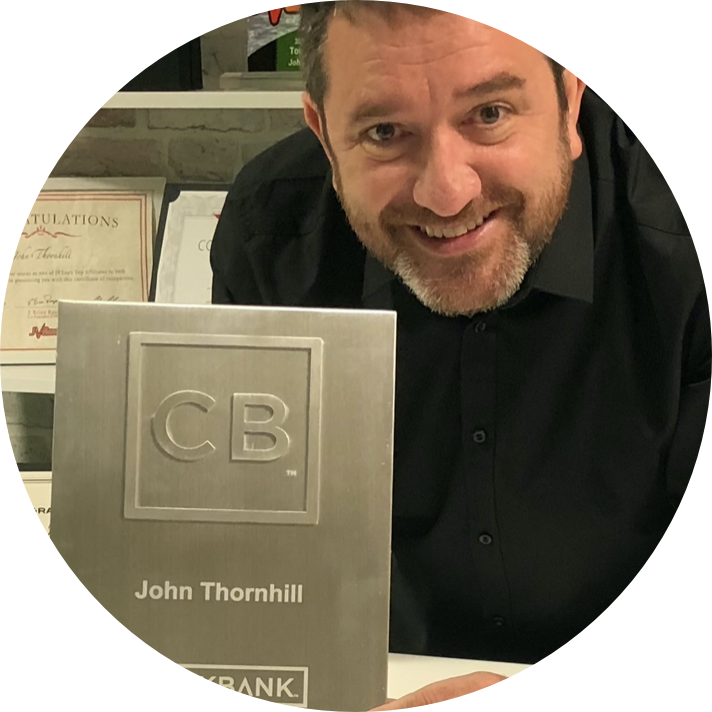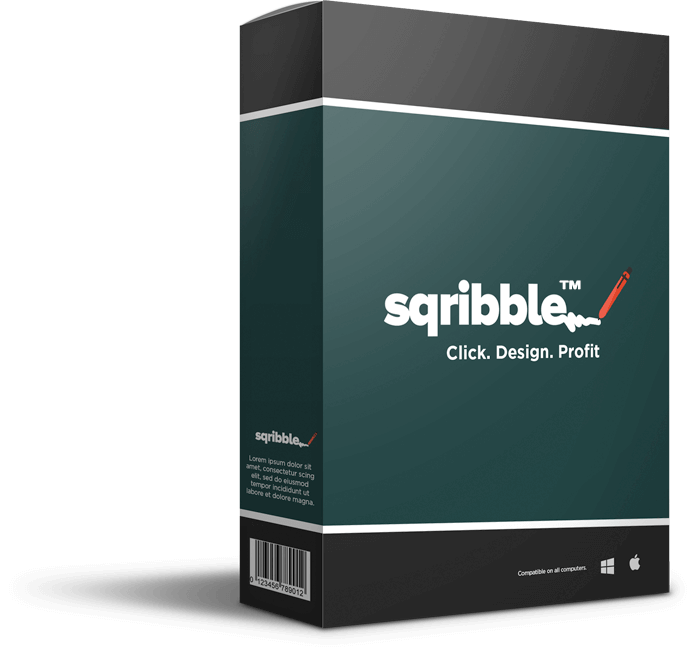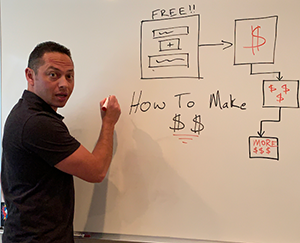Weekend Favs March 23 written by John Jantsch read more at Duct Tape Marketing
My weekend blog post routine includes posting links to a handful of tools or great content I ran across during the week. I don’t go into depth about the finds, but I encourage you to check them out if they sound interesting. The photo in the post is a favorite for the week from an […]
The Silent Power of Entrepreneurial Self-Exploration written by John Jantsch read more at Duct Tape Marketing
The Duct Tape Marketing Podcast with John Jantsch
In this episode of the Duct Tape Marketing Podcast, I interviewed Rob Dubé, a seasoned entrepreneur and co-founder of Image One. Rob is the visionary and CEO of The 10 Disciplines for Managing and Maximizing Your Energy, and cofounder and podcast host of Entrepreneurial Leap. He is also the author of donothing, host of the Do Nothing retreat, and host of the Leading with Genuine Care podcast.
From selling Blow pops in high school to building successful businesses, through his work, Rob challenges business leaders and entrepreneurs to look inward with mindfulness and meditation by sharing his own mindful leadership journey. Co-authored with Gino Wickman “Shine: How Looking Inward Is the Key to Unlocking True Entrepreneurial Freedom”
Key Takeaways
Join Rob Dubé as he shares insights into the profound impact of inner work on entrepreneurial success. Explore how personal growth and self-awareness can transform leadership effectiveness and organizational culture. Discover the importance of saying no often, embracing authenticity, and cultivating stillness in a fast-paced world. Rob’s experiences highlight the significance of understanding oneself deeply to lead with clarity, purpose, and resilience. Unlock the silent power of entrepreneurial self-exploration and embark on a journey of growth, fulfillment, and sustainable success in both business and life.
Questions I ask Rob Dubé:
[00:47] Tell us a little about your entrepreneurial past?
[01:57] How did you working with a start-up like image one in your early days inspire the 10 disciplines in your book?
[04:19] What’s your connection to your co-author; Gino?
[07:05] How do the 10 disciplines show up differently in Shine as opposed to your early work with EOS life?
[12:19] What are some of the benefits and approaches to the discipline of ‘being still’ ?
[15:57] Are there certain rituals and habits that could work for almost anybody?
[13:54] How does a leader help their team adjust to their embracing empathy?
[17:25] What has organizing retreats taught you about self-discovery in leaders?
[19:48] Where can people connect with you, learn more about your work and pick a copy of your book?
More About Rob Dubé:
- Connect with Rob on LinkedIn
- Visit his Website
- Grab a copy of Shine: How Looking Inward Is the Key to Unlocking True Entrepreneurial Freedom
Like this show? Click on over and give us a review on iTunes, please!
Connect with John Jantsch on LinkedIn
This episode of The Duct Tape Marketing Podcast is brought to you by Work Better Now
Visit WorkBetterNow.com mention the referral code DTM Podcast and get $150 off for your first 3 months.
John (00:08): Hello and welcome to another episode of the Duct Tape Marketing Podcast. This is John Jantsch. My guest today is Rob Dube. He’s a co-founder of Image One, visionary and CEO of the 10 Disciplines for managing and Maximizing Your Energy. And co-founder and podcast host of Entrepreneurial Leap. He’s also a co-author of a book we’re going to talk about today that he wrote with Gino Wickman has been a guest on the show. The book is titled, shine How Looking Inward is the Key to Unlocking True Entrepreneurial Freedom. So Rob, welcome to the show.
Rob (00:43): Thank you, John. I appreciate you having me. It’s an honor to be here.
John (00:47): I always love exploring a little bit of people’s entrepreneurial past. Are you still involved with Image One that was a significantly different business venture than what you’re seem to be focused on today? So I’d love to go there first, if you don’t mind.
Rob (01:00): Sure. I am involved in the sense that I am a shareholder of the company with the person that I founded it with. Neither of us are involved anymore and we are what you might say in the owner’s box, and we have a CEO who runs it and is much more capable than we are to take it to new heights.
John (01:22): So your current business is much more about working with leaders and as we imply in the book looking inward, it’s definitely a very self exploration type of work. I’m sorry, image one was very much, what would you call it? A software, purely software play
Rob (01:40): Actually. We provide managed print services, which is document management like copiers and multifunction printers for mid to enterprise size organizations.
John (01:52): Okay, so I’ll stop on that except the bridge question, which is how did your work with growing a company like that, which is a little more brick and mortar hands-on ish type of work lead to your discoveries or your exploration of inner and the 10 disciplines that we’re going to talk about?
Rob (02:10): Yeah, so just I’ll go back a little bit. I started my entrepreneurial career selling Blow pops out of my locker in high school. My best friend and I were doing that together and we had all kinds of businesses through high school and college and the audience, usually when I tell that story, many people relate to it because they’ve had some experience of their own doing that or they know somebody who has. When we graduated college, the two of us started this company Image One and it was exciting just to have a business, but I had experienced a great deal of trauma growing up and I wasn’t feeling like I was as good of a business partner as I needed to be a best friend. And I was married at the time, so I just felt like something didn’t feel right. So I started my own journey of inner work to try to find some peace for myself. What I learned along the way was that it was helping me be a better leader at the company. And so that’s really, those many years ago is really where I first started to see the benefits of the work that I’ve done and now to come to where I am today sharing this with leaders, it’s an honor to do so.
John (03:25): Yeah, so it’s funny how often two things you’ve mentioned, how often I hear I started a business when I was in seventh grade or that kind of thing from entrepreneurs. They all have, we all have, right? Mine was a very grunt work. I sealed driveways the company during the summers to pay my way through high school and college. It was awful work, but it paid well. The second thing was a lot of times how many entrepreneurs create businesses around trying to solve their own problem or solve something they couldn’t find in the market? And in a lot of ways that’s what you did. You were trying to solve your own frustration or problem at some level, and that led you to an entrepreneurial discovery, which I think it’s so common. I’m curious, as I mentioned, you co-authored this book with Gino Wickman. Many people are familiar with him, the EOS system that he created and moved out into the world. What’s your connection or what was your initial connection with Gino?
Rob (04:23): So one of the very impactful things that happened along my journey was that eight years into running the business, my best friend and I looked at each other and we said, we don’t know what we’re doing. We’re growing this business, but it is out of control. And someone introduced us to this guy who was just starting up this business to help entrepreneurs get control of all this stuff. When I met him, I really didn’t trust him. At first I thought, I’m not sure about all this stuff, but we ended up becoming one of his first seven clients. He wrote about us in his book Traction, which has been a bestseller, and it really did help us gain control of our business. And so it was a really impactful thing for myself inside because I felt more at peace with my business and a little bit more control. And so that’s how we first met. And then we struck up a friendship and we would meet very often at a coffee shop for many hours. And he taught me many different ways that he was living his life, which we ultimately wrote in part in the book that you referenced.
John (05:35): So in the EOS Life book, which was really again an extension of EOS but into personal life of genomes, it ends with these 10 disciplines. I don’t want to say they’re an afterthought, but there’s certainly an add-on to the book. And forgive me if I’m wrong on this, did you do the audiobook with him?
Rob (05:55): Yes. And thank you bringing that up because they asked me to do that interview for bonus material on the audio book. While I was preparing, I realized these 10 things I have been learning from GTO over the last 20 years and they have impacted my life greatly. So after the interview, the two of us went out to lunch and we started talking about how impactful it’s been, and I said, I think this would be a great thing to teach to entrepreneurs, but I think it goes much deeper than the way you wrote it. And that started our path on really taking a deeper dive into each one of the disciplines and how they actually help us understand ourselves better once we have a better understanding of ourselves, how we can protect ourselves in our lives, meaning having really clear boundaries. So we are focused on the things that make the most impact in this life.
John (06:56): So the 10 disciplines show up as a big large part of this new offering shine. So rather than buy the book, if you want to know what the 10 disciplines are, we might talk about a couple of them, but how do they show up differently in Shine than they did in EOS life?
Rob (07:13): So what we do is we take a deeper dive into five of ’em and really help you understand yourself at a deeper level. Okay, so I’m going to give you a simple example. One of the disciplines is say no often, and this is where we encourage people to get really clear about saying no to anything that doesn’t fit into what their purpose is, how they’re going to make the greatest impact. And what we notice in working with our clients is that they have a hard time saying no. In fact, they’re saying yes to 90% of the requests that come their way. And so that’s high level. So now we have to go a little bit deeper and ask ourselves why do we say yes to so many things that we know don’t really fit into the type of impact that we want to make? And so we go a little bit deeper and then we go a little bit deeper from there as we keep peeling off the layers and helping ourselves to understand better why we’re doing the things that we’re doing so we can change our behavior.
John (08:20): Well, I’ll tell you why we say no or why we say yes to everything is because I think in a lot of ways that’s a protective mechanism, believe it or not, to stop us from doing maybe some of the hard work that we’re afraid to do.
Rob (08:34): Thank you for that, John. That’s definitely one of the things that’s happening. And we see fomo, fear of missing out on a great opportunity, things like that, not wanting to disappoint people. And so when you start to identify those, we’ve just named three between the two of us, you can go deeper. Why am I afraid to disappoint people? What’s that saying about me? And you keep going deeper into that. Where does that come from, et cetera. So that’s why these are so impactful. They really help us take a better look at ourselves
John (09:10): And now a word from our sponsor. Work better now. Work better now provides outstanding talent from Latin America, hand matched to your business with over 40 roles across various industries, including marketing. They’re a reliable partner for consistently finding the perfect fit for your business. Simply tell them what you need and they’ll handle the rest. We have two work better now, professionals on our team, a marketing assistant and a marketing coordinator, and we’ve been blown away by their abilities, responsiveness, and professionalism. They’ve really become an essential part of our growing team. And to top it off, each dedicated and full-time work better now. Professional is 2350 per month and there are no contracts to schedule a 15 minute consultation with a work better now rep and see how they’ll support your business growth goals, visit, work better now.com. Mention the referral code DTM podcast, and you’re going to get $150 off for your first three months. That’s work better now.com. And don’t forget that DTM podcast code. Yeah. And in the end we conclude that it was always our parents’ fault, right? That’s easy out. There’s one of the disciplines is simply stated as know yourself. And while that sounds, I don’t think anybody argue with that. Certainly every leader that has some self-awareness is a better leader. How do you from a practical standpoint, break that down in a way that’s actually going to serve?
Rob (10:43): Yeah, so what we want, what our hope for you is that you realize what your true self is, that you free your true self. And so this is you starting to understand the most authentic version of who you are, and that’s when you start looking at society and the expectations that you’re working with in your life. You start to notice how your identity oftentimes is wrapped around what you do professionally and also your social circles and the things that seem important in those social circles, and really questioning that. This is a very deep dive. Now, practically speaking, how can we start? Well, it depends where you’re at on the continuum. You can do simple things, which I imagine many of your listeners have already done to some degree, which is take a personality profiling tool, take as many as you can and start uncovering all the things that are you.
(11:43): And you can go from there. You mentioned kind of in a funny way about must be our parents’ fault. Well, you can go to therapy. That’s very common days. When I started going many years ago, it didn’t have that same comfort level for many, but you could go to therapy and those are a way to start to understand cause and effect, et cetera. And there are all sorts of modalities that you can explore that really help you to understand yourself better. And we write about those of the books, so there’s a very large list and you can pick and choose what seems to ping you.
John (12:17): Yeah, yeah. So one of the disciplines, probably possibly my favorite, although it took a long time to realize this, and it’s just stated as be still, and I live in a national forest, I have lots of ability to get out into nature and be still. But for a lot of entrepreneurs, that’s actually probably one of the hardest ones for them to do. I mean, we’re so used to the chatter, the noise, the what’s next on my to-do list. What are some of the remedies, I guess for that? Well, let’s start with what are some of the benefits of approaching this discipline and then what are some of the ways to do it?
Rob (12:57): Yeah, so the first thing I always like to share is one of my favorite quotes from the author Ann Lamont. And she says, my mind is like a bad neighborhood. I try to never go there alone. And so as someone who’s having trouble with the Be still, I encourage you to reflect on that quote from Ann Lamont. Sitting is hard because subconsciously we know exactly what’s about to happen. We’re about to put ourselves through all the anxiety and stresses and all the wonderful, beautiful things that happened over the last 24, 48 hours and maybe the last 24 years. You never know what’s going to come up. So why would we put ourselves through that? Well, it starts with our ability to come into the present moment and realizing with great perspective, that’s really all we have, and we want to reinforce that as much as we can.
(13:59): The next thing we want to do is be able to pay close attention to our thoughts and our patterns and our loops and our dramas, and again, allowing for us to bring perspective to what those are and what’s actually going on. And by doing that, we have a greater ability to begin to settle our mind and also settle our nervous system so our bodies and our minds aren’t made to go at the speed that we’re going at. So we’re really adapting real time these days, and it’s of great benefit for our overall health to just settle down much different than sleep. Sleep has incredible benefits and we must do that and get enough of it. But this is different because we are an awake state and we are fully aware of everything that’s going on around us. The sensations, the sensations of sight and smell and hearing and tasting and touching and bringing our awareness to those things. And this, again, I’ll always go back to the word that I like to use, which is perspective. It all brings it into great perspective, whatever it is that we have going on, and hopefully that helps us to carry that through into our regular everyday lives where we get caught up into the many dramas of life or challenges or successes where we can pause and notice that moment as Viktor Frankl says, between stimulus and response and make a choice. And that’s why we encourage people to be still for 30 minutes every day.
John (15:43): And I know probably everybody needs to work out their own rituals or own habits that they practice. Right. Are there some that you think, yeah, make up your own mind, but here’s a couple that you really ought to explore or consider? Are there certain habits, certain rituals? I know you talk about a nightly preparation routine and a morning ritual. Are there some that you think probably work for almost anybody?
Rob (16:10): Well, as it relates to be still, some of the ones that we write about are prayer, contemplation, journaling. You and I just talked about meditation. Those are simple. You can play around with each and every one of them. You could spend 10 minutes journaling, 10 minutes in a quiet meditation, and then 10 minutes in a contemplation, and you could do five, 10 minutes of prayer. So you do have to find what works for you and try your best to not get discouraged. People quickly get discouraged. Primarily the feedback that I get is that they’re just really busy and it feels like a waste of time, so you have to stick with it and know that there’s great benefit down the road for you. This isn’t a quick fix pill that brings you calm because you tried it for a few days or 21 days. It’s a lifelong practice having a routine, same time, same place every day. Maybe it’s the morning before you get your day started or the evening before you go to bed or anything in between. You really do have to play around and find what’s perfect for you.
John (17:25): I know you do, or we were talking about, you’ve been doing a retreat for a number of years that is really a compact way to practice some of what you write about in the book, and I assume that you have worked with some leaders to help them implement some of the ideas and shine. Is there anybody that, I don’t know if you can talk about personal case studies, but have you seen significant discoveries that people have by taking up this type of practice as a leader?
Rob (17:52): Absolutely. I mean, in my retreat, I have high performing entrepreneurs that come once per year. They come for five days. Three of the days are a complete silence, which many of them are very nervous about doing that. At the end of the retreat, we do a closing circle and the emotion and the deep love and peace that comes out of these high performing people that are going a thousand miles an hour, and the inspiration and motivation they have to carry that with them when they come down off the mountain because we do it in the mountains and bring that into their leadership, into their family lives is truly amazing. I always share with them, please bring this practice with you into your daily life. So carry it through and keep it going for 30 minutes a day because it will continue to cultivate and grow, and your mind will be at greater peace not a hundred percent of the time, but it will have greater peace and you will have a greater energy with those around you.
John (19:11): Yeah. You know what I find you talked about mentioned that idea of maybe it won’t be a hundred percent of the time, but I think what does happen, or at least for me, my own experience, is you start to recognize it when it’s not happening, when that piece is not happening. And that to me is that’s half the battle because you get off of the autopilot, you’re like, oh, I’m witnessing this now, and so now I know what to do about it. And I think that’s one of, there is no, like you said, magic pill. I’m going to be happy a hundred percent of the time, but now I’m going to lose some of the stress because I understand it now, if that makes sense.
Rob (19:43): Right? Yep, absolutely.
John (19:45): Well, Rob, I want to thank you for something by the Duct Tape Marketing Podcast. Is there some place you’d invite people to find out more about your work and obviously pick up a copy of Shine?
Rob (19:55): Yes, absolutely. Thank you for giving me the opportunity to do that. And the listeners can go to the 10disciplines.com and you can find the link to the book there. And many of the things that you and I have spoken about today and many more, we always like to encourage people to take our true self-assessment, a 20-question assessment that will give you a sense of where you are with each one of the 10 disciplines. And then we have 10 additional questions that help you understand where you are in terms of freeing your true self. That’s a great assessment that you could take every 90 days just to shine light where light needs to be shine.
John (20:40): Again, I appreciate you taking a moment, and hopefully we’ll run into you one of these days out there on the road.
Sign up to receive email updates
Enter your name and email address below and I’ll send you periodic updates about the podcast.
Recommended Story For You :

How To Make $3493 Commissions Without Doing Any Selling

Successful dropshippers have reliable suppliers.

People Think I Use A Professional Voiceover Artist. NO! I Just Use Speechelo!

Make Money Testing Apps On Your Phone Or Tablet

Make More Money or Lose Everything

Sqribble Is The ONLY eBook Creator You’ll Ever Need.

Work & Earn as an Online Assistant

Create Ongoing Income Streams Of $500 To $1000 Or More Per Day

It's The Internet's Easiest Side Business.






